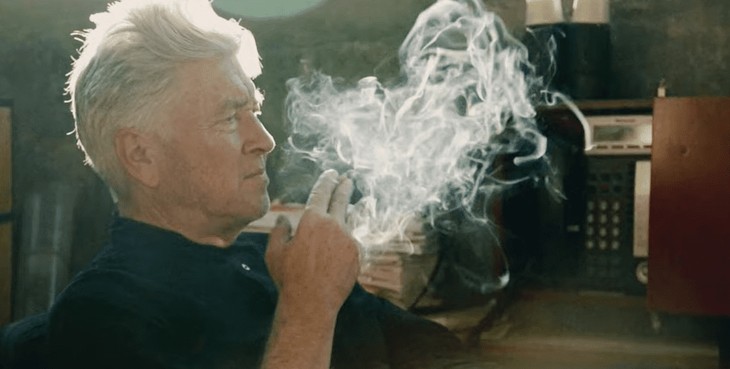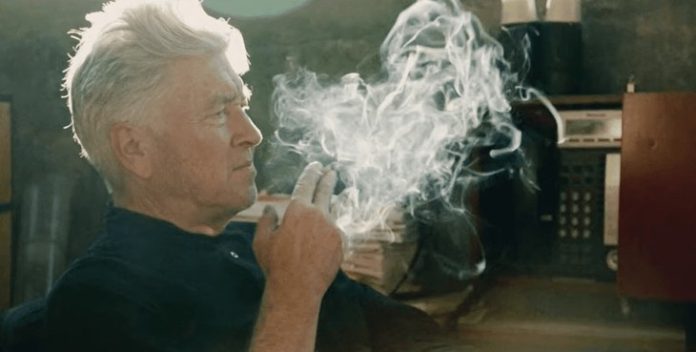Editor’s Note: This profile piece about director/producer/artist David Lynch was originally published in RedState in 2022–also in his birth month of January. Sadly, no one will be able to celebrate his 79th birthday on Jan. 20, just the anniversary of it, as Lynch passed away on Thursday.
Advertisement
The New York Times published an obituary shortly after news broke, but it could not be more appropriate that it is solely a preliminary obituary for Lynch (with an editor’s note promising of a full version later), which is itself quite appropriate for a surrealist film/TV director who did everything in art and life his own way. NYT wrote:
David Lynch, a painter turned avant-garde filmmaker whose fame, influence and distinctively skewed worldview extended far beyond the movie screen to encompass television, records, books, nightclubs, a line of organic coffee and his Foundation for Consciousness-Based Education and World Peace, has died. He was 78.
His family announced the death on social media on Thursday, but provided no details. In 2024, Mr. Lynch announced that he had developed emphysema after years of smoking, and that as a result any subsequent films would have to be directed remotely.
…
The first child of Donald Lynch, a research scientist for the U.S. Department of Agriculture’s Forest Service, and Edwina (Sundholm) Lynch, David Keith Lynch was born on Jan. 20, 1946, in Missoula but lived there for only a short time. The family soon moved to Boise, Idaho, and then to Spokane, Wash.
The deep timberlands of the Northwest left a profound impression on Mr. Lynch, providing the settings for “Blue Velvet,” “Twin Peaks” and its 1992 movie prequel, “Twin Peaks: Fire Walk With Me.”
Advertisement
I will have a column for RedState VIP subscribers later on, but here’s something to tide over us Lynch fans in the meantime.
Speaking of that, we have a stupendous special on VIP memberships for a limited time, and in honor of the Inauguration in a few days. Join RedState VIP and use promo code POTUS47 to get 74% off a VIP, VIP Gold, or VIP Platinum membership. Remember that you can still take advantage as a current member (or take the opportunity to share all RedState has to offer as a gift for someone else). And thank you once again for allowing us to do what we do. It matters!
Director David Lynch is someone who knows a few things about the importance of habits in daily life and how building that into a practice can help anyone lead a more productive life. The mind behind such important American films and TV shows as “The Elephant Man,” “Blue Velvet,” and “Twin Peaks,” among many others, has spoken extensively on his dedicating himself to habitual ways makes room for his art — that is, his filmmaking and other creative pursuits like shooting video blogs of him smoking, while giving a weather report to fans.
Once again, too, we find ourselves in the month of January, which–as I mentioned in my “Higher Culture” VIP review of “The Elephant Man” (linked above)–is when the cinematic maestro celebrates his birthday; he’ll turn 76 on the 20th. When he directed that film — his second feature, after “Eraserhead” — he was a slight bit younger, as you can see in the photo:
Advertisement
The way I see it, he seems to have a handle on something, to keep active and influencing the entertainment world, just as the late Betty White did, until her recent passing at age 99.
In a 2000 interview on PBS’ “Charlie Rose Show,” Lynch described making a daily sojourn to the same Los Angeles Bob’s Big Boy — for seven years straight, at exactly 2:30 in the afternoon, a story which he had previously recounted to then-“Tonight Show” host Jay Leno in 1992.
Why did he do this, day in and day out? He told Rose it was because he sought a chocolate milkshake containing the thick consistency he required of “a great shake.” He explained that it all had to do with what happens at the restaurant’s lunchtime shift change:
I went at 2:30, as you know, because they pour a liquid into these machines, and it has to have time to get cold. To become thick.
During lunch, there’s a turnover — so, they’re always kind of thin. But after the lunch settles down, before the thing gets too old in the machine, it has time to congeal and get nice and thick.
And you’ve got a chance for getting a great shake.
Later in the Rose interview, the director said he ate the same meal, every day, for lunch and dinner.
For lunch: tomatoes, tuna fish, feta cheese, and olive oil.
Advertisement
When Rose laughed in delight, then told his subject the concept tickled him, Lynch confirmed it cheerfully: “Every day. It’s very good.”
He continued with his evening meal line-up:
Chicken, little pieces of chicken and broccoli, and a little soy sauce.
But this time, when the interviewer asked him if this took place every day, Lynch said he could make exceptions, like when he’s traveling.
Rose pointedly asked if Lynch could be termed a “creature of habit.” And I think his answer is the key to learning from his life philosophy the most.
Yes. Habit in a daily routine and then, when there’s some sort of order there, then you’re free to mentally go off anyplace.
You’ve got a sort of safe foundation and a place to spring off from.
As Lynch explained to Leno, he “like[s] habitual behavior because it’s a known factor, then your mind is free to think about other things.”
Now, this next habitual behavior is a bit controversial. But stick with me.
The artist was also an ex-smoker — who picked the habit back up after a 20-plus year absence.

His reason for resuming it? It’s better to let Lynch explain it himself, in the context of his daily routine:
To be clear, I’m not suggesting that you take up (or resume) smoking, if you’re on a creative path. But it’s no accident that one of Lynch’s fellow indie directors, the great Jim Jarmusch, released a film called “Coffee And Cigarettes” (2003).
Advertisement
To back up to the part about eating the same thing for lunch and dinner (again, this is not something I recommend doing): it reminds me of the late Steve Jobs saying that he only wears one outfit, no matter what, because it cuts down on using time and energy he could spend doing something more productive and/or creative. And it turns out, there are more successful people who do this than I realized. Many people will know that Mark Zuckerberg is another one, but there was also the fashion designer Karl Lagerfeld, among others.
Here’s one last, important point, a quote about then-president Donald Trump that David Lynch made during a 2018 interview with The Guardian newspaper in the U.K.:
He could go down as one of the greatest presidents in history because he has disrupted the thing so much. No one is able to counter this guy in an intelligent way. Our so-called leaders can’t take the country forward, can’t get anything done. Like children, they are. Trump has shown all this.
Trump, as he sometimes does when overexcited by a surprise bit of praise from someone, chopped up the quote to his liking and mentioned it in an interview with Breitbart News (you can easily guess which part). Lynch, who appears to be mostly apolitical, much like actor Billy Crystal when thrown into a controversy about politics, gave what I think is a measured reply. And why wouldn’t he? He just doesn’t have the time for something so mundane — like any great artist.
Advertisement
To circle back to the inspiration for the headline, here’s Chicago’s classic track from the ’80s (1984). [Editor’s Note: It’s supposed to be “Hard Habit to Break” by Chicago, but YouTube wants people to visit the site.]

